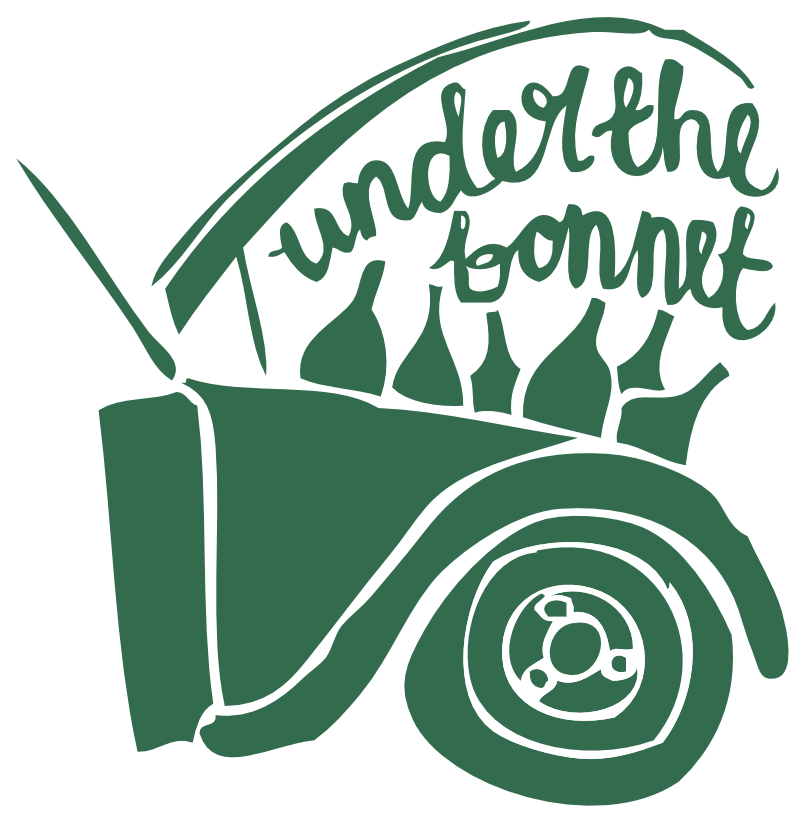Château les Vieux Moulins
Winemaker
Damien Lorteau
TYPE OF AGRICULTURE
Organic
VINEYARD AREA
20 ha
Country, Region, Subregion
Damien Lorteau returned home to his parent's estate in 2010; after a worldwide adventure discovering the idiosyncrasies of winemaking regions- one harvest at a time. Work began closer to home in Burgundy and the Rhône; before taking him further afield to Spain, South Africa, Australia, New Zealand the US.
A return to winemaking in Bordeaux wasn't always on the cards for Damien despite spending a childhood in the vines; but as he travelled further, the passions of the growers he met fuelled an urge in him to make his way home and breathe new life into their small pocket of the right-bank.
The 20 hectare estate is a marriage of two distinct parcels of vines, originally owned individually by his maternal and paternal grandfathers. His parents joined the plots into one estate in 1997 following the retirement of their fathers; and helmed the operation together for 20 years.
Damien's first step in 2010 was to convince his parents to begin organic conversion on the property. He considers himself incredibly lucky that they afforded him the opportunity to change the processes. Bordeaux has been considerably slower on the uptake in the move towards organic agriculture and low-intervention practices; growers like Damien are still outliers in the region.
With Damien officially taking over in 2013 once they achieved organic certification, work since has been as low-intervention as possible, fermentations with native yeasts, no sulphur during vinification; minimal amounts at bottling.
FOR ANY UK WHOLESALE AND STOCK ENQUIRIES, PLEASE CONTACT HELLO@WINESUTB.COM
Wines
A Chat with damien (oct ‘20):
Can you tell us a little about the Pirouette we've just received from you?
It's a blend of our two parcels: my mother's family plots are planted on limestone slopes, close to the Gironde estuary, near the towns of Anglade & St Androny, and my father's are a little further inland east near Reignac, planted over gravelly soil.
We have Merlot on both plots, though it expresses itself in very different ways. The limestone slopes provide the Cab-Franc, which is really one of my favourite varietals when grown on limestone. The gravel soils of my father's give the Cab-Sauvignon.The blend changes each year, depending on what the fruit gives. This year we have 45% Merlot, 30% Cab-Franc and 25% Cab-Sauv. Everything is destemmed, before a gentle maceration. We only ferment with the native yeasts, nothing is added.
We do about 3 pump-overs in total at the beginning of the fermentation; but then I leave it alone: I really do not want to over-extract the wine. Once the wine has undergone malolactic we leave it to settle in the vats before racking it to concrete tanks; where it spends 12 months.
I'm lucky to have two very expressive terroirs to draw from, so I'm really looking for a balance of the two vineyards.
I saw your note that you bottled under the descending moon, does the lunar calendar play an important role for you?
We work by the lunar calendar in the vineyards; we follow it for pruning, planting cover crop, and even for harvest if the rain allows. In the winery I follow it for many things; racking, bottling. It’s something I learnt at a number of wineries and saw the results to be really interesting.
Bottling in the descending moon keeps the micro-organism populations lower in the wine, which means it’s more stable and I can be confident to use only minimal sulphur at bottling; about 20-30mg/l. I don’t want to use any other chemicals; I want the wine to be as pure as possible.
I’ve heard there can be quite a problem in Bordeaux with neighbouring spray from more ‘conventional’ neighbours cross-contaminating into vines farmed organically. Is this something you’ve struggled with?
It can be bad for other growers, yes- especially on a windy day. But we’re very fortunate to have good relationships with all our neighbours, even the ones working conventionally.
We’ve agreed on a border of a few rows of vines that they will not spray, to avoid cross-contamination into ours. We’re very lucky, hopefully we can maintain those good relationships, and for now it has not been a problem. Yet!
How has the harvest been for you this year, I imagine you felt the heatwave through July?
Yes it was very hot, we decided to harvest much earlier than usual to retain freshness. But the yields have been really interesting and the fruit was really good quality. The fermentations were amazing actually, I'm really happy with how they went. Malolactic is underway at the moment, so I'm leaving the wines alone in tank- they'll probably move to barrel in 2 or 3 months.
It was actually a very easy year for the winemaking process!
What’s on the cards for the future there?
I'm excited about the white we planted last year; hopefully it will yield the first vintage in 2021. We planted about a hectare of Sauvignon Blanc on my mother's side; on some interesting limestone slopes. It'll be a new challenge for us, making a white: I'm hoping to do something with good ripeness, a less typical varietal expression.
As I travelled, drinking organic, biodynamic, natural wines at the wineries and wine bars; they had so much more depth, so much more purity of fruit. That depth and purity is what I’m aiming for. The 20 hectare estate is more than enough to work with; if we grew any bigger we’d be unable to do certain jobs by hand; which is important to me.
Our yields are about 10 hectolitres lower on average than other estates in Bordeaux our size. I’m really just interested in quality; not quantity.





Dark-fruited and easy going, lifted with a nimble limestone-driven acidity. Beautifully executed little wine.